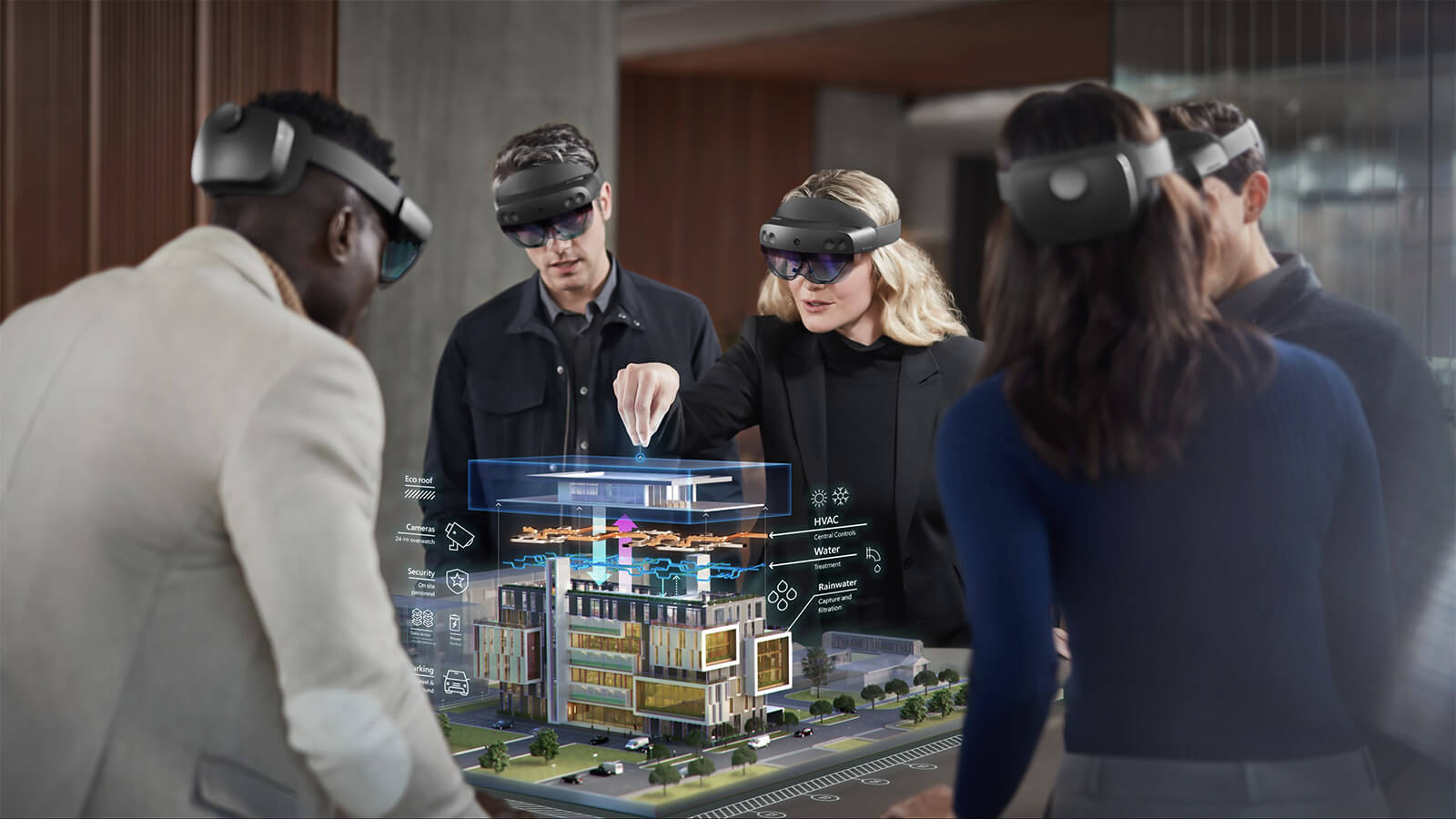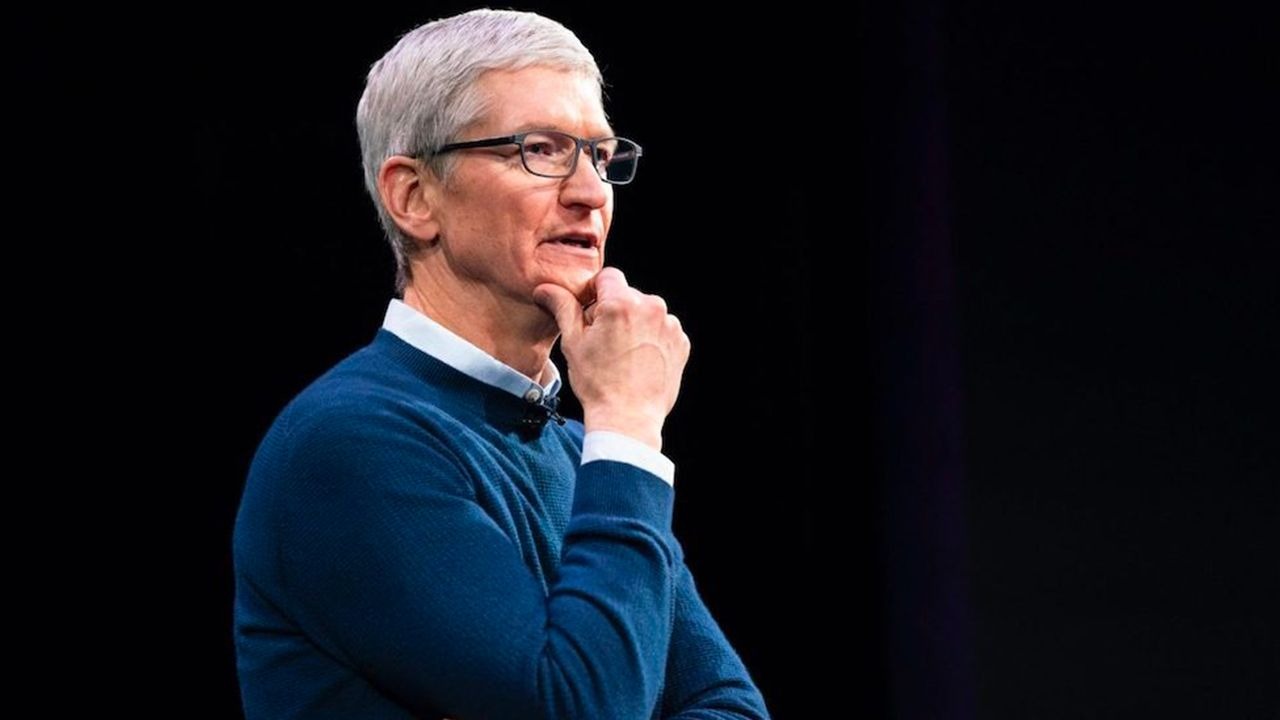Apple’s mixed reality headset makes no sense – unless it’s a head fake
I sure hope for Apple’s sake it’s distracting us from a Mac reveal

The Apple hype train proceeds apace, this time with all kinds of rumors about a mixed reality headset that Apple is widely expected to unveil at WWDC 2023. If true, it would be Apple's first foray into the VR/AR scene, and it would come after a decade of development by Meta, Valve, Microsoft, HP, Acer, and Lenovo, just to name a half-dozen companies that have invested heavily into the tech since the early 2010s.
And ever since Mark Zuckerberg wore an Oculus headset for a tech demo and made a $2 billion offer to buy the company that made it effectively on the spot, VR/AR has been searching far and wide for a use case, and really the only thing we've really been able to come up with is VR chat for furries.
This is hardly the stuff you build a business around (though no slight at all to the Furry community, they are allies, we love them, and they provided us with possibly the single greatest coda to a bitterly contested election imaginable). So why is Apple jumping into the mix now, after Zuckerberg's multi-billion dollar gamble on the metaverse appears to have completely imploded with almost nothing of consequence to show for it?
I've generally gotten out of the Apple prediction game, but I'll make an exception for this one: I would not be surprised if all this talk about a mixed reality headset was a feint to distract attention away from the real products that Apple plans to show off at the event. It's the only thing that makes sense, since a mixed reality headset launch in 2023 would be a huge misstep for a company not typically known for getting the market wrong.
'Mixed Reality' stopped being cool years ago

First, who the hell even uses VR/AR anymore? When I got my first Oculus VR developers kit (DK1) back in 2013, I was as excited as anyone to dive into the new world of VR and explore everything that it had to offer.
Without question, it was impressive and even though the screendoor effect (where your eyes are so close to a screen you can see the space between the pixels) was pronounced, it didn't deter me from playing with the headset as much as possible, even though there wasn't any content for it really (it was an early developers kit, after all).
And so I waited, and waited. And when the Oculus CR1 hit the scene and there were actually games and content that you could engage with, I dropped another few hundred bucks on it to get a much improved headset and some mildly engaging content.
Get daily insight, inspiration and deals in your inbox
Sign up for breaking news, reviews, opinion, top tech deals, and more.
But other than flying around in Elite Dangerous and waiting desperately for a MechWarrior VR game, I got pretty bored pretty quickly. Even Skyrim VR was interesting, but once I was out of the first cave and into the lush wilds of the game itself, it got old really quick.
Sure, it's neat to immerse yourself in the world of Skyrim in a new way, but it was functionally unplayable. Aiming was a nightmare, and in order to effectively play it, you needed a controller which pretty much pulls you out of the experience. No sword-swinging, shield-bashing, spell-slinging for me, just the same button mashing I'd done before.

I clearly wasn't the only one, since even as VR headsets continued to sell, everyone I know who has one has it on a shelf collecting dust, just as my two Oculus headsets did before I tossed them into the electronics recycling bin by me.
The fact is, we did our thing with VR/AR, and no one is really bothering with it anymore. Even Meta's own employees working on Horizon Worlds had to be ordered by their boss to play the game so that someone would be walking around this massive digital world that was pretty much empty like an aging MMORPG server for a game on its last couple months of existence.
The AR scene is even worse, really. There are business cases for this stuff, I'm sure, like prototyping in CAD, but the vision of the future where you would have a digital deskspace with a dozen digital windows open in front of you and floating before your eyes like it was a mid-2000's sci-fi film simply hasn't come to pass.
Yes, that technology exists, and I've tried it. It just sucks. No one actually wants to work like that, and nothing elicited more collective groans around the world than when Zuckerberg asked us to imagine a world where we were taking meetings in the metaverse.
This is the environment that Apple is releasing its mixed reality headset into, which is why it makes no sense.
Could Apple be distracting us from its real reveal?

It's entirely possible that Apple is letting all these rumors of a mixed reality headset run off the rails like it has because it's a useful way to keep us from talking about what it actually might be revealing at WWDC, namely a Mac Pro, an iMac, and a 15-inch MacBook Air, along with a new M2 Ultra chip.
It doesn't make sense that Apple would step on either of its announcements by announcing both a VR headset and a whole new lineup of Macs. If it releases a headset, no one is going to be talking about it's new Mac lineup, even though Apple's Macs are the company's core product line. If it announces new Macs, we'll all have to split our time talking about both, when Apple would really need all the focus to be on a headset to maximize it's positive coverage. It should announce one or the other, but not both.
What's more, if the price of the new headset is to be believed, with some saying it will cost over a grand, then you can forget about any customers even bothering with it. It will strictly be an enterprise product at a time when the VC-funding collapse has pretty much dried up all the free cash that startups had to play with to buy stupid products like an Apple headset at a premium to try to make something out of it.
All this points to the idea of a headset being a smokescreen. It's simply an awful time, place, and environment to launch this kind of product.
Meanwhile, Apple loves, loves, loves a surprise reveal. It telegraphs nothing. Trust me, I know. I cover the company for a living and I would love to get some advanced notice that it was releasing a product so that I could prepare some stories around it in advance rather than scrambling to write up something after it gets announced. Most other companies do this, Apple does not.
I will be finding out about any new Macs the company launches at the same time all of you will, and nothing helps lay the groundwork for that than to have 80% of the technology press talking about a radical new Apple product that will not be shown off, since that's a lot less speculation about the company's new Macs which makes their reveal much more of a surprise to everyone.
If we're all expecting a headset, and instead get a whole host of new Macs, then you'll get literally breathless coverage of all those Macs since us journalists will be running to catch up with the news in real time, which makes Apple's products seem more exciting than they might actually be.
If Apple does announce a headset, then it is officially off its game

When Apple announced its new MacBook Air (M2), I was genuinely heartbroken. I hate the colors of the new MacBook Air and the tease we all got of the new colorful Mac products hinted at by the 2021 iMac increasingly looks like it was a one-off. Apple is sticking with Space Grey, Silver, and whatever the other two colors are. I couldn't care less, and it showed a rare misstep for Apple in judging the market.
Every other laptop manufacturer is moving away, quickly, from Apple's conservative colorways that five or ten years ago companies couldn't rush to copy quick enough. The most exciting laptops on the horizon aren't MacBook clones, they are a kaleidoscope of colors and styles that let customers personalize their laptop to fit in with their lifestyle.
Quite frankly, Apple's MacBooks look old-fashioned and out of date. It's not 2015 anymore, and making the MacBook a bit more blocky and with a colorway of a 2008 Dell Inspiron ain't going to cut it. Apple, normally a trend-setter, is behind the times in a way I found shocking last year, and it still kinda shocks me to this day.
The MacBook Air might be the best laptop for most people, but not the latest one; the one before it, the M1 MacBook Air. It was the last MacBook that anyone should really bother with that isn't a creative professional, and even they have a compelling reason to just get a suped-up M1 Air. Personally, I wouldn't even have put the last MacBook Air on our best MacBook list based on the price increase alone, but that's a difference of opinion here at TechRadar.
Any way you cut it though, the latest MacBook Air was a bit of a whiff for Apple, and it's evidenced by its declining sales. Yes, all laptops are down, but Apple generally has been able to buck those kinds of trends. But I think not enough is said about how it missed the market with its last MacBook launch, and if it does announce a headset, it will be a major red flag about the direction of the company. One mistake can be written off, but two in two years is a worrying sign that the trillion-dollar company has lost the thread.
Hope springs eternal, though. Maybe Apple does surprise us all at this year's WWDC — with a purple MacBook. A boy can dream.

John (He/Him) is the Components Editor here at TechRadar and he is also a programmer, gamer, activist, and Brooklyn College alum currently living in Brooklyn, NY.
Named by the CTA as a CES 2020 Media Trailblazer for his science and technology reporting, John specializes in all areas of computer science, including industry news, hardware reviews, PC gaming, as well as general science writing and the social impact of the tech industry.
You can find him online on Bluesky @johnloeffler.bsky.social